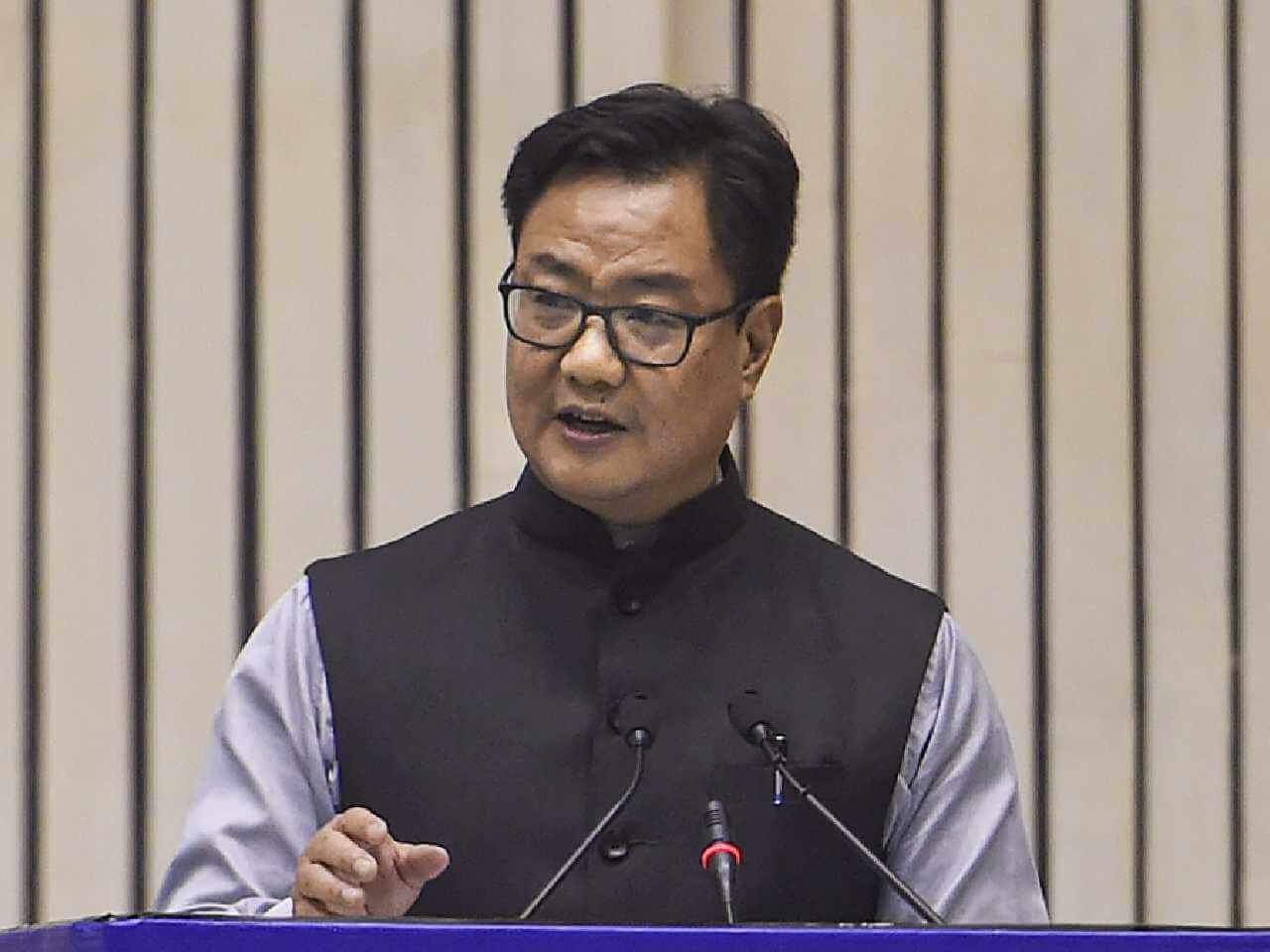Union Minister of Law and Justice, Kiren Rijiju said that the people of the country are not happy with the collegium system. The union law minister who was speaking at ‘Sabarmati Samvad’ organized by Rashtriya Swayamsevak Sangh (RSS)’s weekly magazine Panchjanya said that according to the spirit of the Constitution, it is the government’s job to appoint judges. The union law minister said:
I know that the people of the country are not happy with the collegium system of appointment of judges. If we follow the spirit of the Constitution, then the appointment of judges is the job of the government. Secondly, there is no practice anywhere in the world except in India that judges appoint judges themselves. Thirdly, as the Law Minister, I have seen that half the time and mind of the judges is spent in deciding who will be the next judge. Their primary job is to deliver justice.
“The mechanism to appoint judges is opaque. Half of the Judges’ time is engaged in making deliberations as to who should be appointed as a Judge. If Judges are involved in the appointment of the Judges, they can’t be immune to criticism”, the union law minister further said.
“While selecting Judges, it is but natural that you would recommend people who are known to you. Judges write too, I have those secret documents, but still, I am telling you that when judges send comments about the recommendees, they say…I know him, he appears before me…his character is good, I am happy with his work, etc… Now, when you have come into the executive process, then it is natural that you would recommend only those who are known to you, who are related to your family, who are close to you”, the union law minister added.
“Such Allegations [‘Uncle Judge Syndrome’] are raised when the judges are involved in the appointment of fellow judges. Before 1993, no Judges were criticized for Judicial appointments, because they were not part of the process”, the union law minister said.
Currently, the appointment of judges is done as per the collegium system. The Collegium is headed by the Chief Justice of India and comprises four senior-most judges of the court. The Supreme Court in the Second Judges Case (1993), introduced the Collegium system, holding that ‘consultation” really meant “concurrence’ [as appearing in Article 124(2) of the Constitution of India]. The apex court had added that “it was not the CJI’s individual opinion, but an institutional opinion formed in consultation with the two senior-most judges in the Supreme Court and that the same would be binding upon the executive”.
The Parliament of India in 2014 through the 99th Constitutional Amendment introduced the National Judicial Appointments Commission (NJAC), which was notified by the union government in April 2015. The NJAC proposed to make the appointment of the high court and Supreme Court judges and chief justices by the commission, whose members would be drawn from the judiciary, legislature, and civil society. The Supreme Court in October 2015, declared the NJAC unconstitutional, and the constitutional amendments involved, to violate the Constitution of India.














